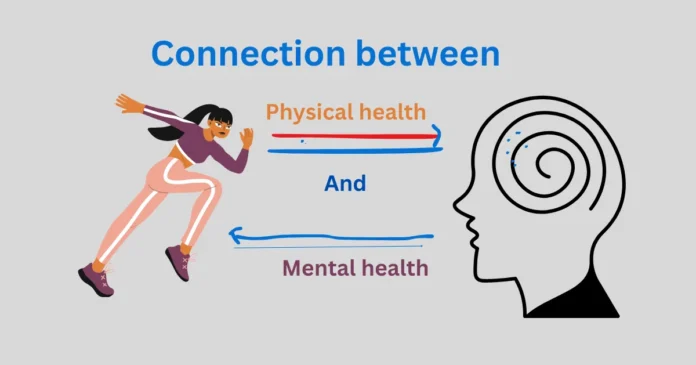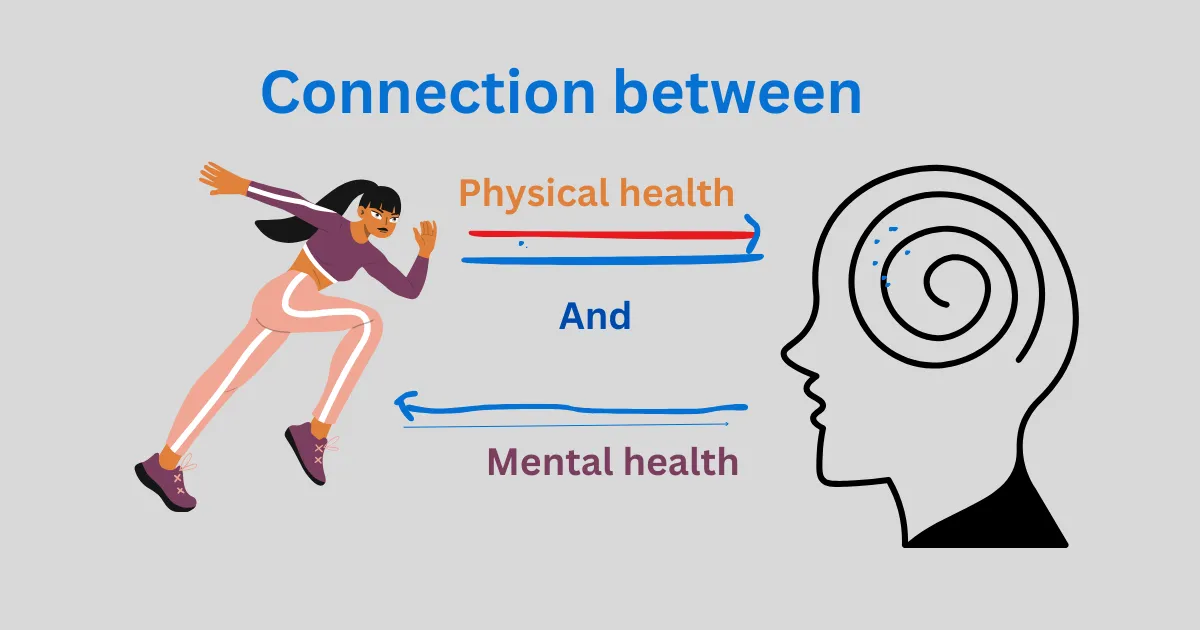Table of Contents
ToggleExploring the Interconnection Between Mental and Physical Health
In the realm of health and wellness, the separation between mental and physical well-being is often seen as distinct. However, in reality, the two are intricately intertwined, with each exerting a profound influence on the other. Understanding the intersection of mental and physical health is essential for achieving holistic well-being and promoting overall wellness.
The Mind-Body Connection:
The connection between mental and physical health is often referred to as the mind-body connection. This concept emphasizes the interrelationship between our thoughts, emotions, behaviors, and physical health outcomes. Research has shown that mental health conditions such as stress, anxiety, and depression can have tangible effects on physical health, contributing to the development or exacerbation of various medical conditions.
Effects of Mental Health on Physical Health:
- Cardiovascular Health: Conditions like depression and anxiety have been linked to an increased risk of cardiovascular diseases such as heart disease and hypertension.
- Chronic Pain: Mental health disorders can amplify the perception of pain and exacerbate symptoms in individuals suffering from chronic pain conditions.
- Sleep Disorders: Mental health issues often disrupt sleep patterns, leading to insomnia and other sleep disorders that can negatively impact physical health.
- Immune Function: Persistent stress and adverse emotions have the potential to compromise the immune system, rendering individuals more vulnerable to infections and illnesses.
Effects of Physical Health on Mental Health:
- Neurotransmitter imbalance: Physical health problems can alter neurotransmitter levels in the brain, leading to mood disturbances and mental health disorders.
- Self-Esteem and Body Image: Chronic illnesses or physical disabilities can impact self-esteem and body image, contributing to feelings of depression, anxiety, or low self-worth.
- Stress Response: Physical health challenges can trigger stress responses in the body, exacerbating mental health symptoms and increasing the risk of developing mood disorders.
- Social Isolation: Physical health issues may limit social interactions and participation in activities, leading to feelings of loneliness and isolation, which can negatively impact mental health.
Holistic Approach to Wellness
Recognizing the interconnectedness of mental and physical health underscores the importance of taking a holistic approach to wellness. This approach involves addressing both mental and physical health needs simultaneously to achieve optimal well-being. Strategies for promoting holistic wellness may include:
- Regular Exercise: Physical activity not only improves physical health but also boosts mood, reduces stress, and enhances overall mental well-being.
- Healthy Diet: A balanced diet rich in nutrients can support both physical and mental health, providing the essential vitamins and minerals needed for optimal brain function and physical vitality.
- Stress Management Techniques: Practicing stress-reduction techniques such as mindfulness meditation, deep breathing exercises, and yoga can help alleviate mental distress while promoting relaxation and physical health.
- Social Support: Building strong social connections and seeking support from friends, family, or support groups can provide emotional support and foster resilience in the face of challenges to both mental and physical health.
- Seeking Professional Help: When faced with mental health challenges or physical ailments, seeking professional help from healthcare providers, therapists, or counselors can provide effective treatment and support for improving overall well-being.
- Healthy Lifestyle Choices: Making conscious choices to prioritize health, including regular exercise, a nutritious diet, adequate sleep, and stress reduction techniques, can promote resilience and prevent the onset of chronic diseases and mental health disorders.
- Building Support Systems: Developing strong social support networks, engaging in meaningful relationships, and participating in community activities can foster a sense of belonging and connectedness, which are essential for mental and emotional well-being.
Conclusion
In conclusion, the relationship between mental and physical health is complex and multifaceted, with each influencing the other in profound ways. By recognizing the interconnectedness of mind and body and adopting a holistic approach to wellness, individuals can optimize their health and well-being, leading to a happier, healthier life
FAQS
How do physical health and mental health overlap?
Physical health and mental health overlap in various ways, such as how physical illnesses can affect mental well-being and vice versa. For example, chronic pain can lead to depression, while stress can manifest as physical symptoms like headaches or digestive issues.
What is the link with mental and physical health?
The link between mental and physical health is bidirectional, meaning each can influence the other. Biological, psychological, and social factors all play a role in how mental and physical health interact.
What is the relationship between physical activity and mental health?
Physical activity has a positive impact on mental health by releasing endorphins, improving mood, and reducing stress. Regular exercise is associated with lower rates of depression, anxiety, and other mental health disorders..
What is the difference between physical and mental health in points?
- Physical health primarily refers to the condition of the body and its ability to function optimally, while mental health pertains to emotional, psychological, and social well-being. Some key differences include:
- Physical health focuses on bodily functions and fitness, while mental health addresses thoughts, emotions, and behaviors.
- Physical health is often measured through objective factors like vital signs or medical tests.While mental health is assessed subjectively through self-reporting and clinical evaluations.
- Physical health can be influenced by factors like genetics, lifestyle choices, and environmental exposures. Whereas mental health is shaped by a combination of genetic, psychological, and social factor





